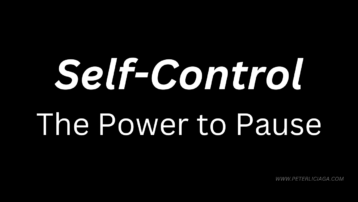There’s a phrase I’ve carried with me through every season of life, from the streets of the South Bronx to the stages of Germany, and onto the dojo floors I now call home:
“I don’t quit.”
Now let me be clear—there have been moments I wanted to quit.
Moments when the pain was real, when the fatigue hit deep, when my confidence was shaken.
But the practice of self-discipline—the habit of doing what needs to be done even when you don’t feel like it—has saved my life more than once.
And I don’t say that lightly.
What Self-Discipline Really Is
It’s not punishment.
It’s not grinding yourself into the ground to prove a point.
It’s a form of respect—for your goals, your growth, and your future self.
For a child, self-discipline might look like sitting down to do homework before playing.
For a teen, it could be getting up for practice before the sun.
And for me, these days, it’s showing up to physical therapy, listening to my body, and doing the work even when progress feels slow.
Self-discipline says,
“I made a decision—and I’m going to follow through.”
“This isn’t about how I feel in the moment. It’s about who I’m becoming.”
My Story with It
When I was 17, I found myself in a dance studio—not because it was cool or comfortable, but because I knew I needed a way out of the chaos around me.
Ballet taught me structure.
Rehearsals taught me consistency.
Getting back up every time I was corrected… taught me how to grow.
Later, martial arts would take that same mindset and embed it even deeper.
There were days I felt exhausted. Out of alignment. Sore in body and spirit.
But the discipline I practiced in my youth carried me.
And that’s what I want to pass on.
Because discipline is not something you suddenly get when you “grow up.”
It’s something we must model, nurture, and speak into our kids now.
Why It Matters
We’re raising kids in a world of distractions.
Quick fixes. Instant results. One-click satisfaction.
But life doesn’t reward quick.
It rewards consistency.
Self-discipline is the difference between starting something… and finishing it.
Between making a promise… and keeping it.
Between talent… and transformation.
And the good news?
It’s a skill that anyone—at any age—can build.
What I Tell My Students
When a child tells me, “I can’t do it,”
I don’t just say, “Yes you can.”
I say, “Let’s do it again. Let’s build that muscle. Let’s strengthen your follow-through.”
Because what they’re really saying is: “This is hard. I don’t feel like trying anymore.”
And that’s exactly the moment where self-discipline needs to be taught—not with shame, but with support.
We don’t quit because it’s hard.
We practice because it’s hard.
And we don’t practice to be perfect—we practice to become strong.
Final Thoughts
This week’s mindset—“I’ve got the Power of Self”—isn’t just about belief.
It’s about behavior.
And today, we focus on the power of self-discipline:
The quiet, daily act of showing up.
The decision to keep going, even when you don’t feel like it.
The internal voice that says, “You’ve got this… let’s try again.”
That’s where real growth lives.
That’s what builds strong kids, strong families, and strong communities.
Let’s keep going. Let’s keep choosing.
Let’s keep Living Strong.
— Peter




